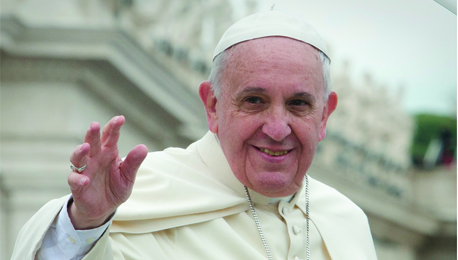At the plenary assembly of the Pontifical Council for Culture in mid-November, Pope Francis delivered a speech in keeping with the topic of this meeting, namely “unravelling anthropological models that underpin new ideologies” in the areas of medicine and genetics and even neuroscience and robots.
Medicine and genetics, “which enable us to look into the most intimate structure of the human being and intervene in order to change it”, pave the way to treating diseases which, a short time ago, were considered to be incurable. However, they also “pave the way for determining human beings by ‘programming’ certain characteristics”. Neuroscience, for its part, provides “important information on how the human brain functions”, but “also challenges the realities of Christian anthropology” such as the soul, self-awareness and freedom. As for autonomous robots, they “lead us to reflect on what is specifically human and what makes us different from machines”.
These scientific and technological developments “lead some to think that we have reached a specific point in the history of humanity, almost at the dawning of a new era and the birth of a new human being, greater than anything we have known before,”explained the Pope. We are facing “serious, major” questions. The Church finds an anthropological response to these questions in Genesis, “which is based on concepts of relationship and freedom”.
Although anthropology “is still a horizon in which existential and ethical choices are determined”, this horizon “becomes increasingly fluid and flexible in the light of economic and social change and, in particular, the incredible discoveries of science and technology”. The challenges draw our attention to scientists, noting that “science does not have all the answers”. Pope Francis thus advocates “going beyond the tragic division between the ‘two cultures’, the humanist-literary-theological culture and the scientific culture” and encourages “greater” dialogue. To this end, the Church puts forward several key principles, namely, “the focal point of the human person who must be considered an end and not a means to an end”, the “universal destination of goods, which also includes knowledge and technology” and “the principle that not everything that is technically possible or feasible is therefore ethically acceptable”.
“Science, like any other human activity, has limits that must be respected for the good of all humanity and warrants a sense of ethical responsibility. The real measure of progress, as Blessed Pope Paul VI reminded us, is that which serves the good of each and every human being”, the Pope concluded.
Zenit, Hugues de Warren (20/11/2017); Radio vatican (18/11/2017)

